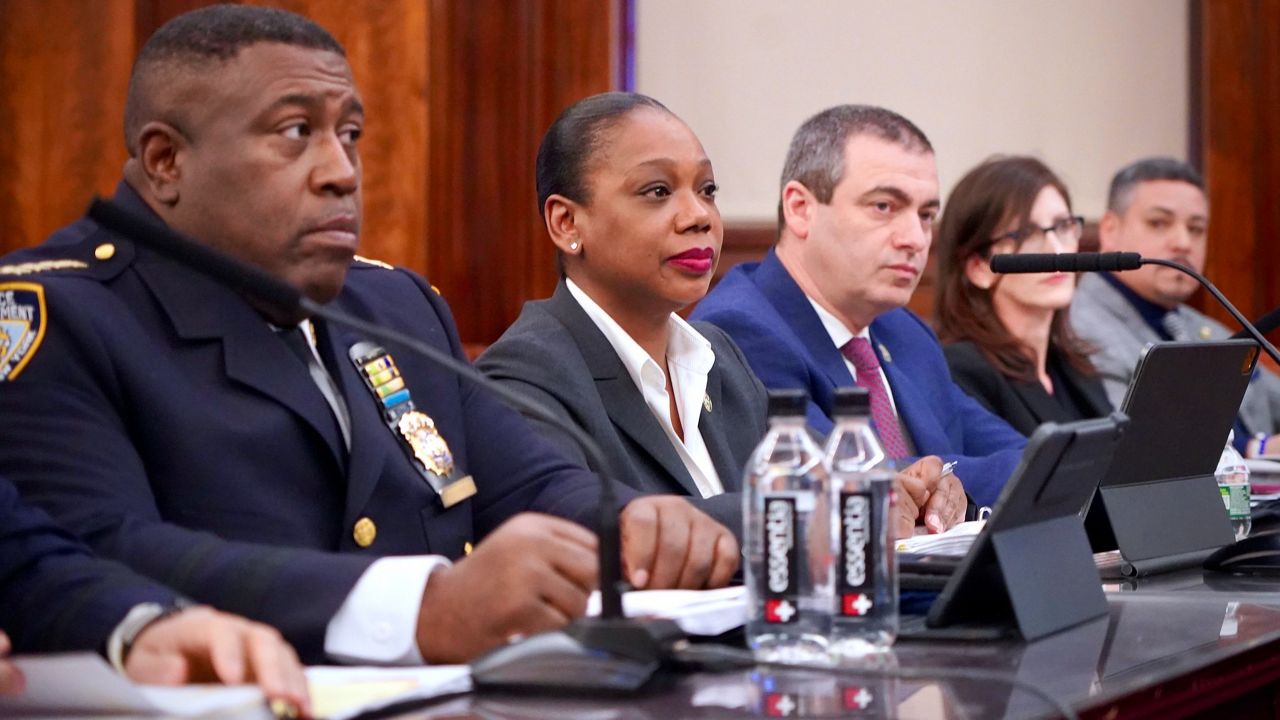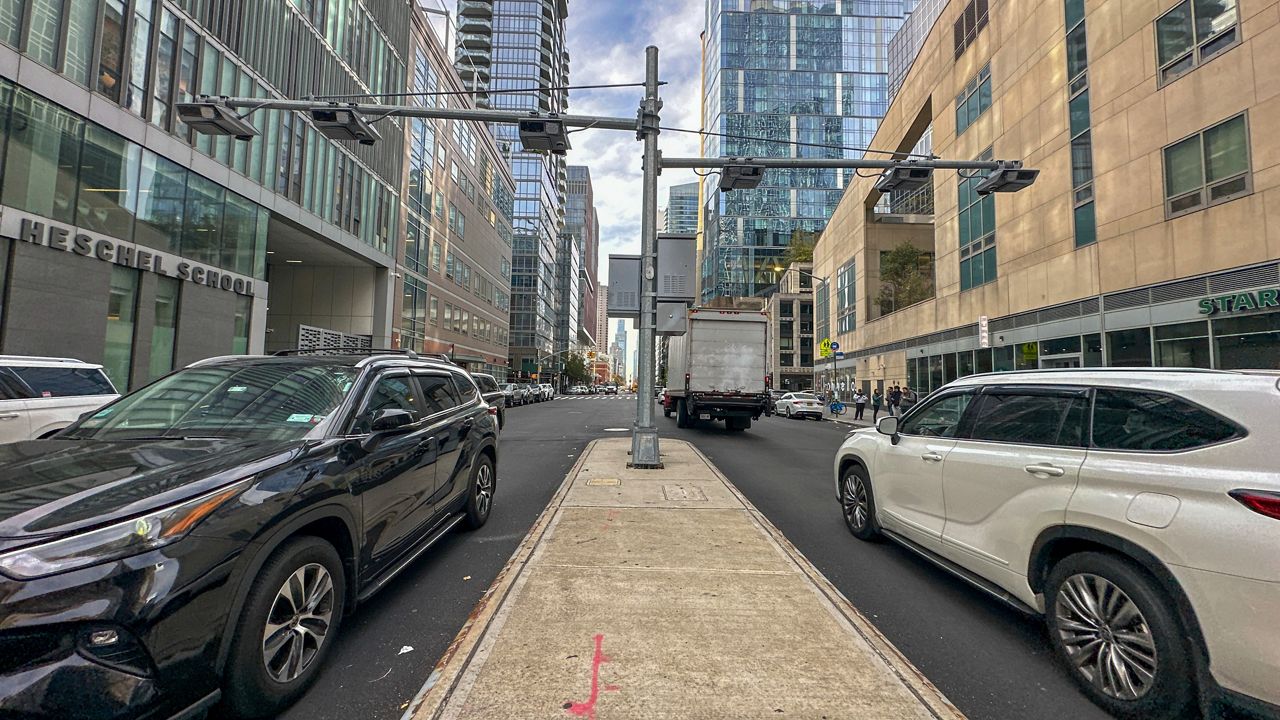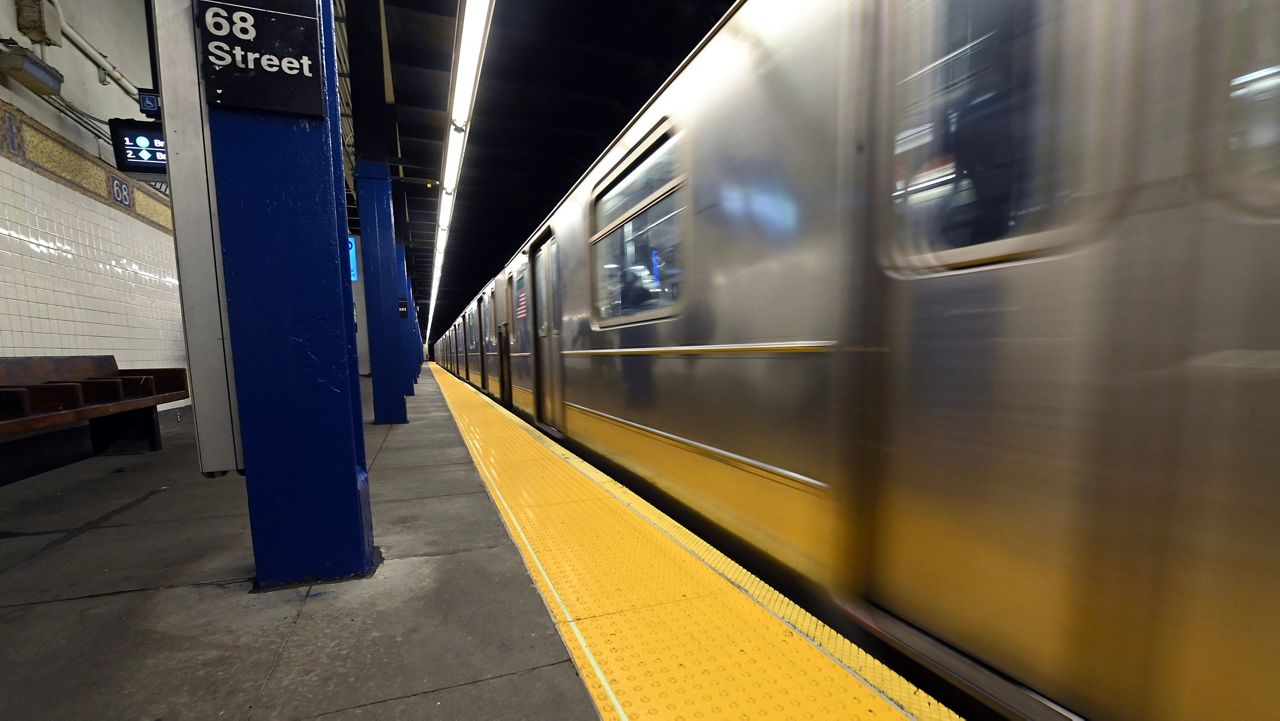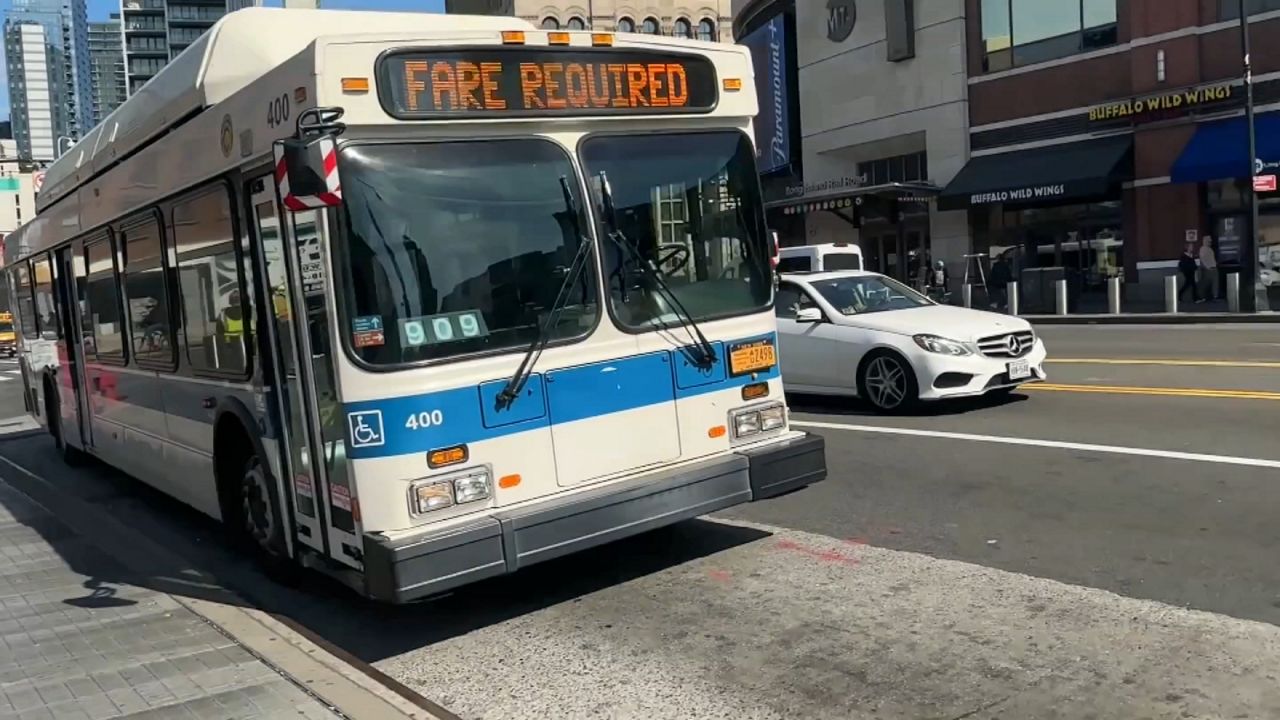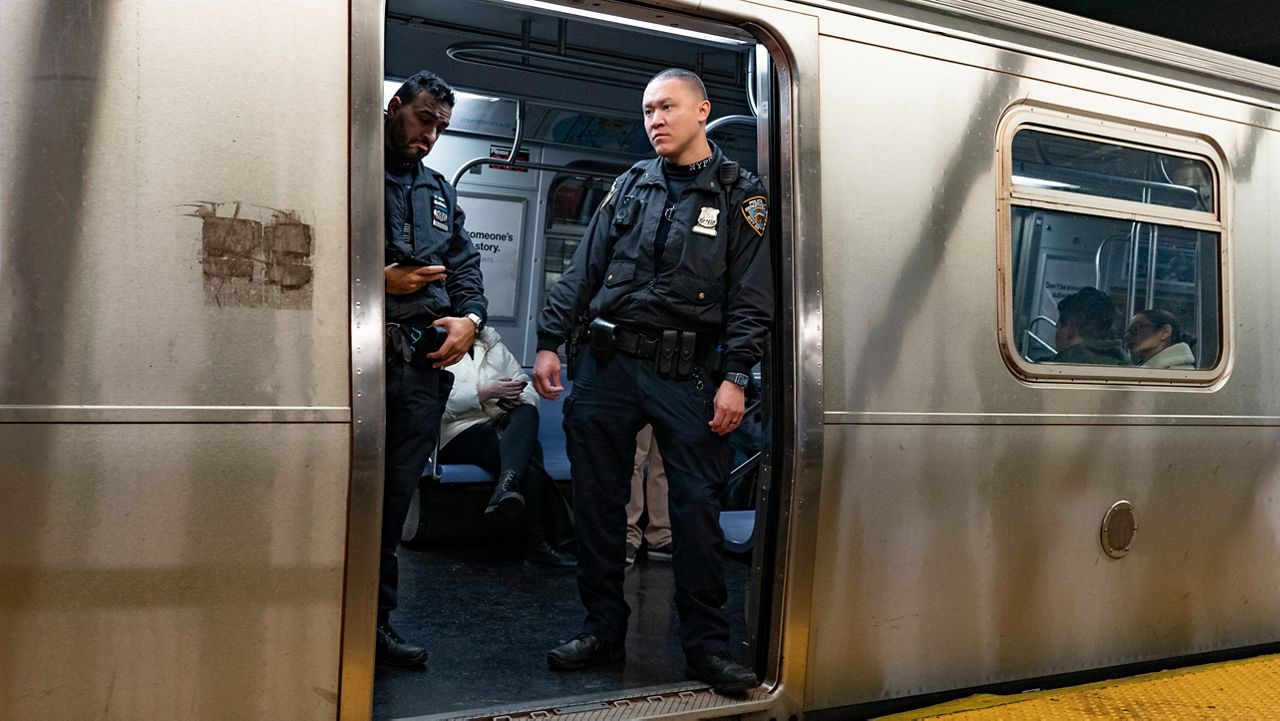City Council members and police officials clashed at a budget hearing Monday over the department’s spending on overtime, its public accountability and disciplining of officers.
The NYPD has already spent $150 million more than its total overtime budget of $455 million. According to the council, the department could spend double that by the end of the current fiscal year in June. So far, the department has spent $584 million, according to the Citizens Budget Commission.
A report from City Comptroller Brad Lander released ahead of the hearing Monday showed that overtime spending has grown despite the department losing more than 2,400 employees between July 2020 and December of last year.
City Council Speaker Adrienne Adams noted that the NYPD has also not met Mayor Eric Adams’ goal for each agency to reduce its budget by 3%, and asked police officials whether they believed they should be held to the same “fiscal realities” as other agencies.
“I think we should be treated the same as other agencies,” said Kristine Ryan, the NYPD deputy commissioner for budget.
Ryan noted that the police overtime budget was cut in the wake of the pandemic — a number she said should be revised upward.
“We are not in that climate anymore. We are not operating at that level anymore,” Ryan said. “So what we are seeing is a return to historical practice.”
The mayor’s proposed spending for the NYPD in the coming fiscal year is $10.9 billion, including about $5.2 billion in operating expenses. The operating budget is down $88 million from the current year, in large part due to cuts in unfilled civilian positions, according to numbers cited by the council.
The reduction in civilian positions comes despite the efforts of the council and other observers to reduce police spending in part by having uniformed employees perform fewer desk jobs in the department.
NYPD Commissioner Keechant Sewell said at the hearing Monday that overtime costs are necessary to the everyday functioning of the department. The overtime also supports extended patrols in the subways, part of the mayor’s efforts to improve crime statistics and riders’ sense of safety in the transit system, and which are offset with some state funding.
“We recognize that is not sustainable in the long term,” Sewell said of the increased transit patrols.
Ryan said the NYPD has taken “significant” efforts to reduce its overtime expenditures for major events, despite the tally in spending so far this year, with a 40% reduction in overtime spending at last year’s Halloween parade and a 20% reduction for the marathon. The high cost of overtime now, she added, is in part driven by rising wages from collective bargaining agreements for NYPD officers.
She suggested that the department’s overtime allowance should return to pre-pandemic levels of about $500 million. Between 2016 and 2019, according to Lander’s report, the department typically exceeded its budget by about 10%, spending $600 million in the fiscal year ending June 2019.
Council members also questioned Sewell on the department’s disciplining of officers accused of misconduct. Sewell said she intends to release proposed changes to the NYPD’s disciplinary matrix, which spells out consequences for various violations of police policy, in the coming weeks.
According to statistics provided by the council, punishments authorized by Sewell for substantiated misconduct aligned with those suggested by the Civilian Complaint Review Board, a police oversight body, in about 85% of cases.
“It is important that officers expect to be disciplined,” Sewell said.
Sewell has called some of the consequences included in the disciplinary matrix, which was created by former Mayor Bill de Blasio under the previous police commissioner, “manifestly unfair.”
Speaker Adams pressed Sewell on the department failing to appear at a council hearing earlier this month regarding the NYPD’s response to protests of police misconduct in May and June 2020. The city is already set to pay out millions to protesters who alleged in a lawsuit that they were corralled and hit with batons by police officers during a June 2020 protest in the Bronx.
Officials said Monday that the department cannot answer questions about the protests due to a “confidentiality agreement” in place in one of the lawsuits, an assertion Speaker Adams called “disappointing.” The office of New York State Attorney General Letitia James, which is also suing the department over the 2020 protests, said there is no such gag order, according to Hell Gate.
“It is never the intention of this police department to disrespect this body,” Sewell said of the no-show. “We are open to scrutiny.”
“I understand, you've made that clear,” Speaker Adams said. “We definitely have a differing of opinion, when it came to whether or not the department was able to appear on that day.”
Protesters disrupted the hearing as an official from the NYPD's law department discussed the Strategic Response Group, a large unit of officers that is deployed during protests and which officials said also supplement everyday patrols in crime-heavy areas across the city. The protesters called for “accountability” for the SRG.
Editor's note: This article has been updated to reflect that Commissioner Sewell has agreed with the CCRB's disciplinary recommendations in about 85% of cases.




